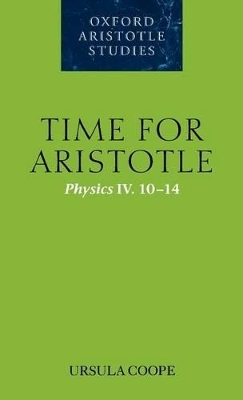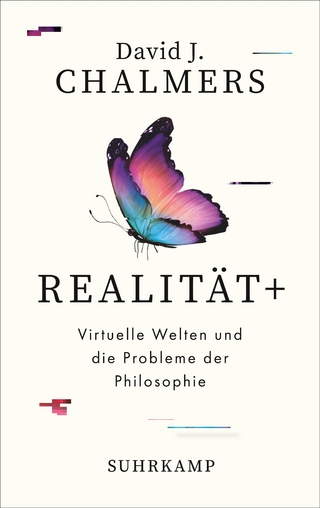
Time for Aristotle
Physics IV. 10-14
Seiten
2005
Oxford University Press (Verlag)
978-0-19-924790-5 (ISBN)
Oxford University Press (Verlag)
978-0-19-924790-5 (ISBN)
What is the relation between time and change? This book argues that Aristotle sees time as a universal order within which all changes are related to each other. Based on this interpretation, it explains two Aristotelian claims such as: the now is like a moving thing, and that time depends for its existence on the mind.
What is the relation between time and change? Does time depend on the mind? Is the present always the same or is it always different? Aristotle tackles these questions in the Physics, and Time for Aristotle is the first book in English devoted to this discussion.
Aristotle claims that time is not a kind of change, but that it is something dependent on change; he defines it as a kind of 'number of change'. Ursula Coope argues that what this means is that time is a kind of order (not, as is commonly supposed, a kind of measure). It is universal order within which all changes are related to each other. This interpretation enables Coope to explain two puzzling claims that Aristotle makes: that the now is like a moving thing, and that time depends for its existence on the mind. Brilliantly lucid in its explanation of this challenging section of the Physics, Time for Aristotle shows his discussion to be of enduring philosophical interest.
What is the relation between time and change? Does time depend on the mind? Is the present always the same or is it always different? Aristotle tackles these questions in the Physics, and Time for Aristotle is the first book in English devoted to this discussion.
Aristotle claims that time is not a kind of change, but that it is something dependent on change; he defines it as a kind of 'number of change'. Ursula Coope argues that what this means is that time is a kind of order (not, as is commonly supposed, a kind of measure). It is universal order within which all changes are related to each other. This interpretation enables Coope to explain two puzzling claims that Aristotle makes: that the now is like a moving thing, and that time depends for its existence on the mind. Brilliantly lucid in its explanation of this challenging section of the Physics, Time for Aristotle shows his discussion to be of enduring philosophical interest.
I. INTRODUCTORY PUZZLES AND THE STARTING POINTS OF INQUIRY ; II. TIME'S DEPENDENCE ON CHANGE ; III. TIME AS A NUMBER AND TIME AS A MEASURE ; IV. THE SAMENESS AND DIFFERENCE OF TIMES AND NOWS ; V. TWO CONSEQUENCES OF ARISTOTLE'S ACCOUNT OF TIME
| Erscheint lt. Verlag | 3.11.2005 |
|---|---|
| Reihe/Serie | Oxford Aristotle Studies Series |
| Zusatzinfo | 5 line drawings |
| Verlagsort | Oxford |
| Sprache | englisch |
| Maße | 145 x 224 mm |
| Gewicht | 380 g |
| Themenwelt | Geisteswissenschaften ► Philosophie ► Metaphysik / Ontologie |
| Geisteswissenschaften ► Philosophie ► Philosophie Altertum / Antike | |
| ISBN-10 | 0-19-924790-0 / 0199247900 |
| ISBN-13 | 978-0-19-924790-5 / 9780199247905 |
| Zustand | Neuware |
| Haben Sie eine Frage zum Produkt? |
Mehr entdecken
aus dem Bereich
aus dem Bereich
Virtuelle Welten und die Probleme der Philosophie | Wie VR, AR und KI …
Buch | Hardcover (2023)
Suhrkamp (Verlag)
38,00 €


